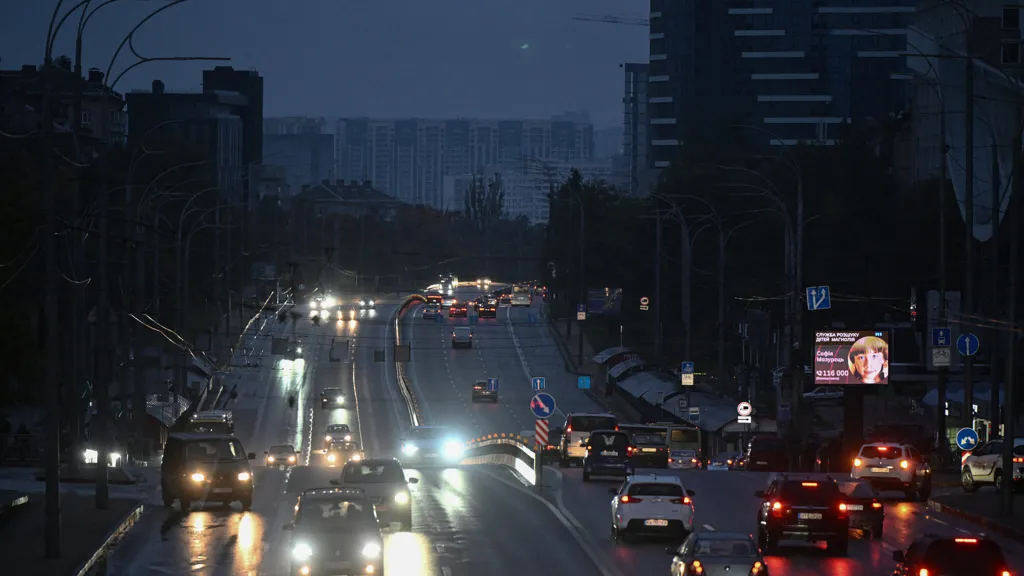Every fall since the war started in 2022, Russia has targeted electricity and heating infrastructure in an effort to weaken Ukrainians' will to continue fighting.
Russia fired missiles and drones at power plants and electrical infrastructure throughout Ukraine on Friday, causing blackouts in Kyiv, the capital, and several other cities and continuing a yearslong effort to collapse Ukraine's energy grid.
Every fall since Russia's full-scale invasion in February 2022, Russian strikes have targeted electricity and central heating infrastructure before the onset of winter weather, as part of an effort to break Ukrainians' will to continue their fight.
Ukraine has responded by beefing up air defenses, fortifying transformer stations with concrete barriers, diversifying energy sources with new wind and solar fields, and adding resilience to the grid with large backup batteries. Russia has adapted by honing its strategies to evade air defenses, sending combinations of drones and missiles in waves during attacks that last hours.
The barrage on Friday was the second large volley aimed at the electrical grid in a week.
Russia launched 450 drones and more than 30 missiles in the attack, which injured more than 20 people around Ukraine and killed a child in Zaporizhzhia, in the country's south, President Volodymyr Zelensky said in a post on Telegram. The strike targeted infrastructure "that supports normal life, which Russians want to deprive us of," he wrote.
Explosions and the rattle of air defense machine guns kept residents of Kyiv and other cities awake overnight. The energy minister, Svitlana Hrinchuk, wrote in a social media post that it was a "massive attack" on energy infrastructure.
Many of the districts in Kyiv on the eastern bank of the Dnipro River were without power on Friday morning, according to the city's mayor, Vitali Klitschko. Waterworks were affected, with taps running dry in some neighborhoods.
Blackouts were also reported in Sumy, in the country's north, and Dnipro, in central Ukraine, the local authorities said.
A drone or falling debris set on fire a 17-story high-rise in Kyiv, according to Mr. Klitschko, injuring nine people. Debris from intercepted Russian drones fell in the courtyards of apartment buildings in the Podil neighborhood of the capital.
This fall, Russia has also concentrated its fire on natural gas fields, pipes and pumping stations. Until January, Ukraine had transported Russian natural gas in pipelines across its country to customers in Europe, despite the war. It did so to avoid antagonizing Russia's energy clients in Central Europe, the same countries Ukraine relied on for logistics in transporting weapons into the war zone.
Russia had refrained from striking gas infrastructure while this arrangement was in effect. But with no commercial interest left in preserving Ukraine's gas pipelines, Russian forces have opened fire this fall. Ukraine's state gas company reported the largest strike of the war on natural gas infrastructure last week.
In Washington, where President Trump was celebrating the cease-fire deal between Israel and Hamas, he said he now expected his administration to resolve the war in Ukraine. This week, Russian officials have declared recent U.S.-initiated peace talks to have hit a dead end, and Ukrainian officials have said that negotiations will not succeed without additional pressure on Russia.
Mr. Trump spoke at a meeting Thursday with the Finnish president, Alexander Stubb. Mr. Stubb said a settlement in Ukraine would be "the next big one." Russia, Mr. Stubb said, was already weakened militarily and economically by the war.
Mr. Trump responded that he expected to broker an agreement. "We're going to work it out," he said.
